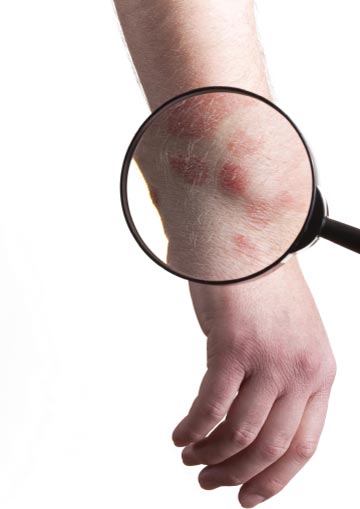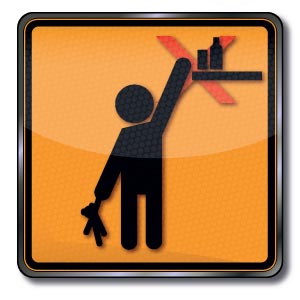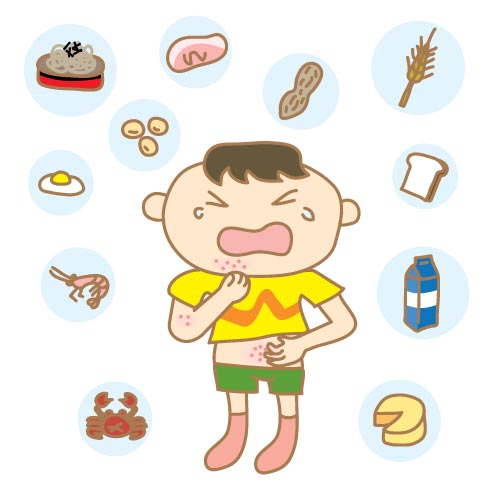Eczema/ dermatitis, is a condition that causes the skin to become inflamed or irritated by certain trigger factors. These triggers are often defined as external substances that irritate the skin and cause flare-ups. The most common type of eczema is known as atopi dermatitis, or atopic eczema, where the advent flare-up or symptoms of eczema lead to other allergic-related complications such as asthma.
Triggers are not causes of eczema, rather they are merely substances that initiate its symptoms. Similarly, the exact cause of eczema, atopic or otherwise is unknown. The closest explanation to why eczema transpires within a person is that external factors (i.e. cold or hot weather, dust, dander, etc.) prompt an overactive defensive response from the body’s immune system.

Eczemic triggers can be divided into a few different categories, namely, physical irritants, allergens, and microbes.
Physical irritants can worsen the symptoms of Eczema and may vary from one child to another.
- Soaps and detergents
- Cosmetics and perfume
- Shampoos, dish-washing liquids
- Bubble bath
- Disinfectants like chlorine
- Coarse clothing (Wear it loose and wear cotton!)

Ensure all cleaning products are kept from reach of children and that you choose suitable toiletries for your child (soap, towel etc.). It’s always good to prepare a small bag of products you already know works for your child that won’t cause irritation or flare-ups. Remember, sharing isn’t always caring, especially when it’s itchy!
Allergens are what trigger allergic reactions and besides eczema symptoms, it may also lead to other complications such as asthma and hay fever. These allergens can further be divided into:
Environmental
- House dust mites
- Dander
- Pollens (seasonal)
- Molds
- Dandruff
Food
- Egg, Nuts
- Dairy products
- Soy products
- Wheat
- Fresh fruit juice, meats, vegetables

Your child may have inherited an allergic response to a specific substance from you or your spouse. You may want to assess the extent of the allergy by seeking further medical advice.
Microbes can also trigger eczemic reactions, some commonly known are:
- Bacteria such as Staphylococcus and Streptococcal strains.
- Molluscum contagiosum virus thrives in warm, humid climates and in areas where people live very close together and common in infants.
- Malassezia and Candida fungal strains colonizing child’s skin can initiate an inflammatory response.
Although not considered to be triggers, stress and climate conditions can intensify symptoms of eczema:

Adults and even children can experience physical, mental or social stresses that amount to escalation or worsening of eczema symptoms. The reason for this remains a mystery but some experts suggest that certain hormones released during stress or reduced immune response of the body may be responsible.
- Changes in daily life like moving into a new house, school or environment can cause stress.
- Other illnesses such as the common cold can also cause stress and initiate an eczema response.
- Certain climatic conditions and temperatures often intensify the severity of eczema.
– Cold environments produce dry air which dries skin.
– Hot, dry environments cause dehydration and flaking of skin.
Eczema outbreaks can be avoided or the severity lessened or managed. Consider these takeaway-tips:
- Moisturize frequently with a good choice of fragrantfree moisturizer.
- Avoid sudden changes in temperature or humidity.
- Avoid sweating or overheating, regular baths can help cool your child down.
- Reduce stress and practice good emotional support.
- Avoid scratchy materials, such as wool.
- Avoid harsh soaps, detergents, and solvents.
- Be aware of any foods that may cause an outbreak and avoid those foods.
Familiarise yourself with your child’s condition to avoid things that may cause a flare-up. You’ll need to know his sensitivities intimately if you are to avoid aggravating his condition. If you’re sending him to day care or have a caregiver take care of your child, it’s best to keep them informed as well. It’s also recommended that you get advice from a dermatologist/pediatrician on managing your child’s eczema.
An educational collaboration with Persatuan Dermatologi Malaysia.






Comments